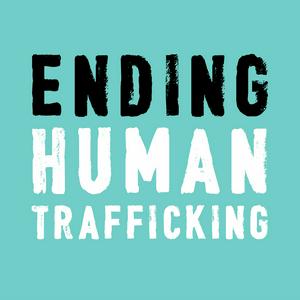344 – Building Futures: Juvenile Justice and Child Welfare
Commissioner Vicki Reed joins Dr. Sandie Morgan to discuss the intersection of juvenile justice and child welfare, highlighting the importance of collaboration, care, and community in supporting vulnerable youth and preventing their exploitation.
Vicki Reed
Vicki Reed has dedicated her career to child welfare and juvenile justice, with over two decades of experience working with system-involved youth. She holds a degree in law enforcement and a master's in criminal justice, and has been a strong advocate for vulnerable children in both public and private sectors. Vicki has served as a juvenile probation officer, the director of a youth-serving agency, and has helped shape state-level training for child welfare workers in Kentucky. Beyond her advocacy and service as Juvenile Justice Commissioner of Kentucky, she is also an accomplished author. In her previous appearance on this podcast (episode 246), Vicki discussed her novel The Car Thief. In this episode, she shares insights from her latest novel, Sleight of Hand, which also draws from her extensive experience working with youth.
Key Points
Vicki Reed shares how an unexpected opportunity and sense of calling led her to come out of retirement to serve as Kentucky’s Juvenile Justice Commissioner.
She emphasizes the critical difference between juvenile justice and adult corrections, noting that punitive approaches fail with youth and that rehabilitation, mental health support, education, and pro-social activities are far more effective.
The high cost of long-term incarceration underscores the need for early intervention and supportive programming for at-risk youth.
Reed discusses how negative placement experiences in foster care can reinforce harmful behaviors, while positive, stable placements with appropriate support can change life trajectories.
Her novels, The Car Thief and Sleight of Hand, serve as creative tools to educate readers about the juvenile justice and child welfare systems, illustrating how caring adults make a significant difference in a young person’s life.
The character of Alex in Sleight of Hand, who experiences 64 placements, highlights the systemic issues facing youth in foster care and the importance of wraparound services.
Vicki introduces the concept of “automatic adult responses” and stresses the value of reframing interactions with youth, drawing on insights from expert Charlie Applestein and his approach from No Such Thing as a Bad Kid.
Pro-social activities, such as music lessons, art therapy, or simple childhood experiences like flying a kite, play a key role in building competencies and self-worth for vulnerable youth.
Collaboration across systems—child welfare, juvenile justice, and mental health—is vital, as these sectors often serve the same youth but in siloed ways.
Reed advocates for dual status teams like those in Indiana, which require collaborative planning for youth involved in both child welfare and juvenile justice systems.
Children in congregate care (group homes or residential placements) are at higher risk for exploitation, making family-based care the preferred model whenever possible.
Reed calls for greater community engagement, suggesting ways individuals can support youth through fostering, volunteering as court advocates (CASA), or contributing to foster care organizations.
Resources
Book: Sleight of Hand by Vicki Reed
Book: The Car Thief by Vicki Reed
Charlie Applestein: No Such Thing as a Bad Kid
EHT246: Why You Should Read The Car Thief
Transcript
[00:00:00] Sandie: Welcome to the Ending Human Trafficking Podcast, brought to you by Vanguard University's Global Center for Women and Justice, here in Orange County, California. I'm Dr. Sandy Morgan, and this is the show where we equip you to study the issues, be a voice, and make a difference in the fight to end human trafficking.
[00:00:22] Today I'm thrilled to welcome back Commissioner Vicki Reed. To the show,

